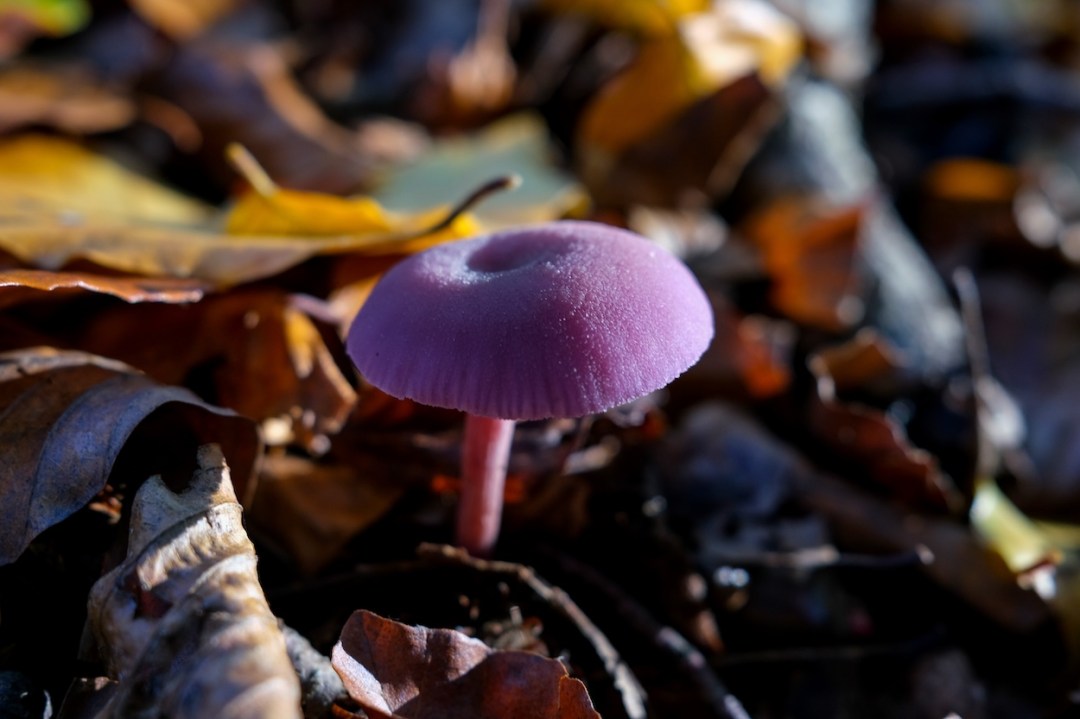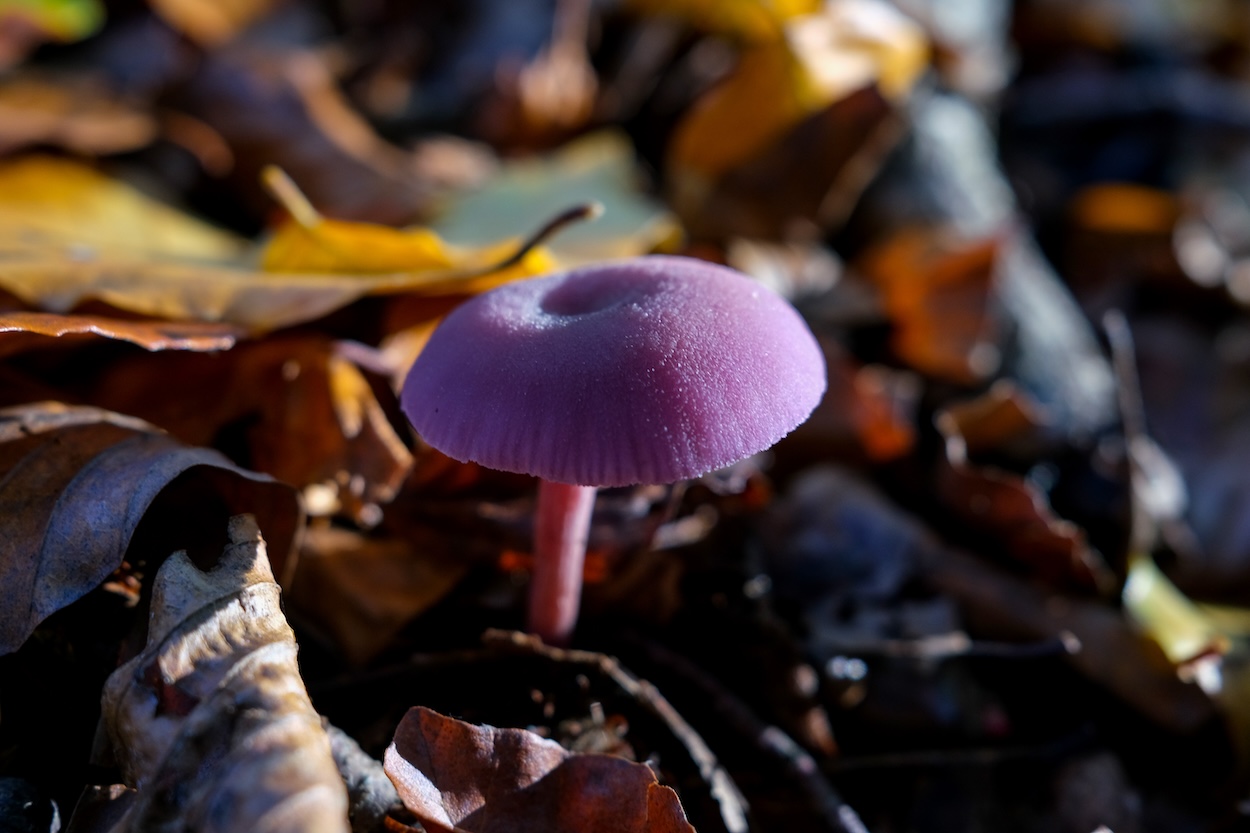These days, it’s fashionable to get deliveries of vegetable boxes. Some do it through devotion to the dour idol of seasonality; the true worshipper knows they are buying a challenge. Many great recipes are created to deal with gluts and shortages. Digby Anderson, in his wonderful Spectator food column, pointed out that every good kitchen runs on the solera system. Cooking with what one has, rather than going out and getting what one wants, provides some useful lessons.
Foraging for mushrooms is the best lesson of all. The result is both a challenge and, if you’re lucky, a glut too. Beneath every fallen leaf or umbral shadow lies possibility; one walks in hope and arrives, occasionally, in a state of grace.
Gorbachev, in a letter to the restaurateur Antonio Carluccio, said Russians referred to mushrooming as ‘the quiet hunt’. He understood the charm of tramping through woods on drizzly days, yearning for the sight of a cep. Still, throughout Russia’s long history of brutality and famine, I’m sure that more than a few of Gorbachev’s countrymen learned the adage that all mushrooms are edible, but some are only edible once.
Nowadays, we like our wild foods. It’s curious that Britain was internationally notorious for awful food over almost precisely the period when our nation was most rich and powerful. Despite our worldly dominion, something was wrong in our spirit. We are the inheritors of that poverty of outlook when we turn to foreign words to describe our fungal prizes. Ceps, porcini, pied de mouton, girolles – these terms harbour no native historical love. To point out that boletes were once called penny-buns is not correction but pedantry.
Despite hardship, hunger and rationing, we lost our traditions of foraging. Elizabeth David, in those postwar years of shortage, wrote of gathering chanterelles in Scotland. ‘Returning to our Scottish bungalow that other year with a damp bundle of these exquisite mushrooms gallantly gathered during a storm, the schoolmaster’s wife stopped to look and used the same expression as the fisherman did about the crab – “You’re never going to eat those dirty things?”’
Yet our forests and fields burst with deliciousness. It is particularly true of this time of year, in the season of mists and mellow fruitfulness, when I sometimes feel like Gabriel Oak, emerging from the woods sprinkled with leaves and burrs, proudly clutching a handful of wood blewits. Oh, the bags of chanterelles I have found! The armloads of ceps! All that remains is for me to tell you of those woods that never fail, those sites that each year yield their treasures with generosity. And with that thought, my sense of benevolent generosity vanishes. Find your own woods, and stay out of mine.








Comments